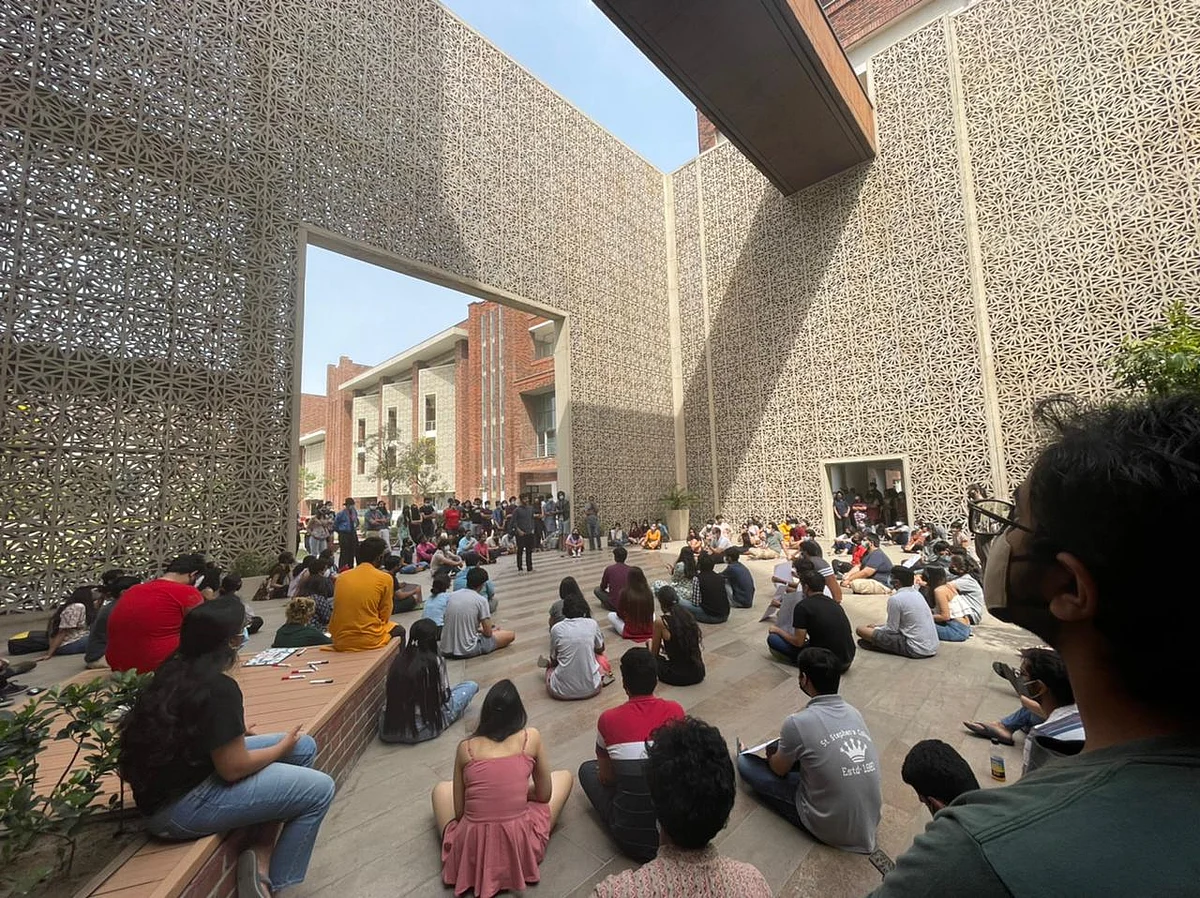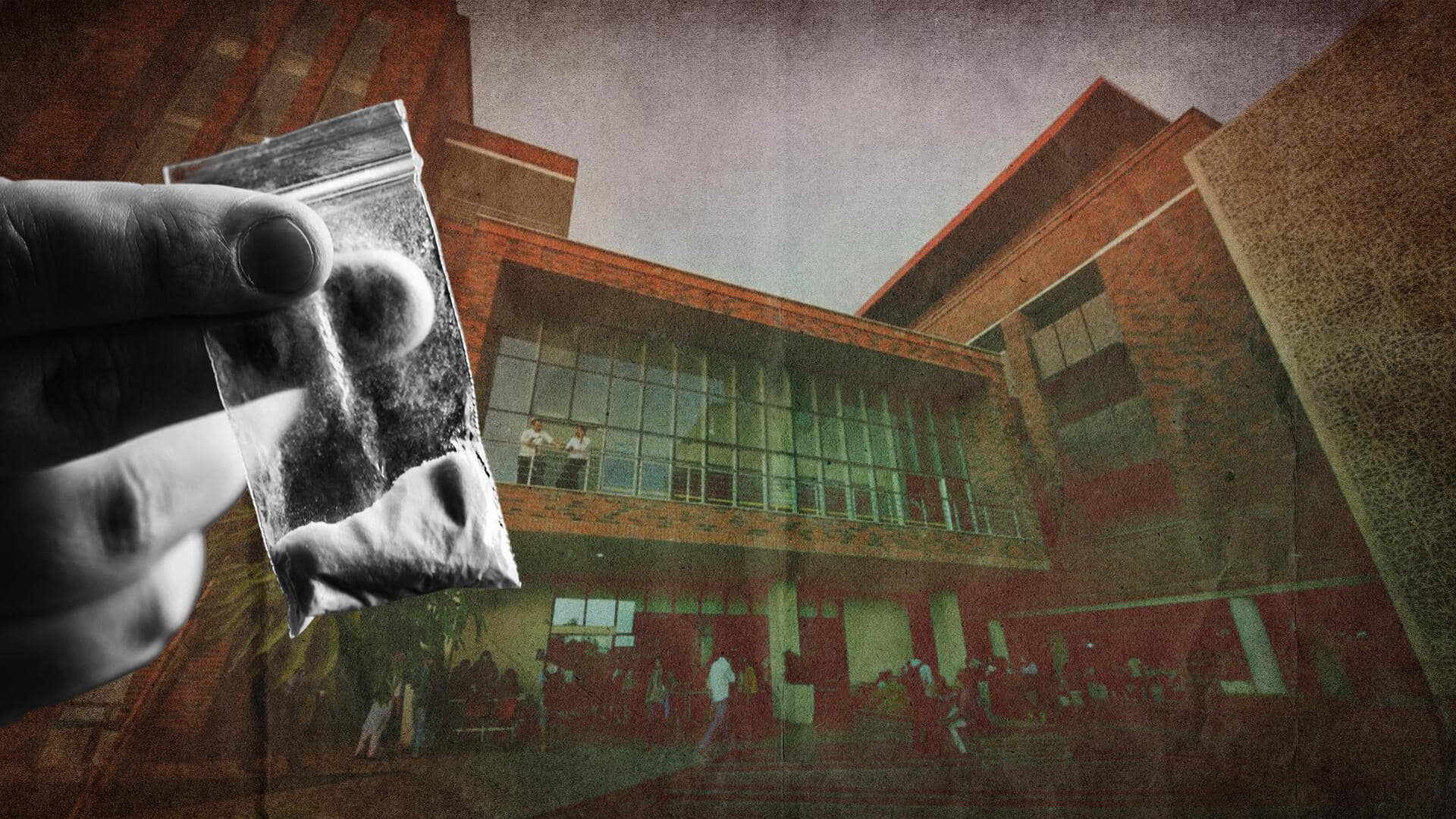Ashoka University Students Protest Surveillance Policies: From Gate 2 Debate
Ashoka’s Surveillance Policies Under Fire: Students Demand Inclusion in Decision-Making

Ashoka University is a prestigious institute in the Rajiv Gandhi Education City, Rai, Haryana. Lately, the institution has attracted controversy as its students have collectively protested against a decision taken by the administration, which had placed baggage scanners and metal detectors at the campus entrance. Under the banner “Strike Against Surveillance,” the protest has fanned debate about privacy, students’ rights, and how much security should yield to personal freedoms.
Background and Context
On January 17, 2025, Himanshu Sachdev, Vice President of Operations at Ashoka University, emailed the students with an email titled “Change of Access Protocols and Enhancement of Campus Security.” These measures included forcing students to walk to Gate 2, 230 meters away from the supposed initial gate, and pass through metal detectors. At the same time, their baggage had to be screened, and they were made to remove items from their pockets before entering and exiting campus.
These were said to be put in place to minimize the intake of substances such as cigarette smoking and alcohol drinking around campus, increase security, and deny access to unauthorized people. Upon the announcement, students triggered an instant response and considered it invading their privacy as university residents.
The Protest Breaks OUT
On the evening of January 24, 2025, students organized a mass walkout, converging at Gate 2. They expressed dissent, and AUSG pointed out that the university administration informed them of the new security measures but consulted no one.

Officially releasing a statement against the decision taken by the university, the AUSG termed the same “a flagrant violation of student privacy” and “an encroachment upon the rights of students masquerading under the guise of security improvements.” The students demanded that the measures be immediately rolled back and insisted on the demand for mass mobilization against the policies implemented by the administration.
Major Grievances of the Protesters
The protesting students pointed out the following significant grievances related to newly formed security measures:
- Invasion of Privacy: Students believed it violated their privacy when undergoing body searches and luggage scans. Such procedures were too rigorous and infringed on their liberties.
- Lack of Consultation: The administration was perceived to have disrespected democratic principles when it decided the student body’s representatives were viewed with the students’ representatives. The decision, according to AUSG, should involve the students.
- Ineffective Approach to Substance Abuse: Protesters said the policy would not help the drug abuse issue on campus. Instead, they demanded that the administration be entirely worried about awareness programs and counselling and not enforce harsh security measures.
- Disruption of Student Movement: Moving the exit to Gate 2, which is 230 meters away from the exit, was considered inconvenient and unnecessarily complex student movement.
University Response and Measures
The university administration made a series of attempts to quell the protest. The students accused the authorities of wetting the atrium floor by using water pipes and buckets to stop them from gathering. Further, several security guards were posted at the site, and more than 200 planters and big pots were spread on the floor to block the students’ gathering.

The assurances notwithstanding, the students decided that they should demand to have an open discussion with the administration. The Dean of Student Affairs (DSA), Shalini Mehrotra, reassured students that their issues would be resolved before the end of the day. Still, no official word was sent out, and no meeting between students and university officials at the atrium was held.
Standoff Between Students and Administration
On the first day of the new semester, January 20, 2025, the Vice Chancellor, Dr. Somak Raychaudhury of Ashoka University, met four representatives from the AUSG. In the meeting, he refused to take back the new security protocols, citing safety on campus as a reason for not doing so.
The student body, however, has stood firm in its protest. They have said they will continue protesting until the Vice Chancellor provides some actionable steps and responds officially. AUSG has promised escalator steps while ensuring the protest is nonviolent and peaceful.
Perspectives on the Issue
The Ashoka University protest has opened up a much larger discussion in the educational realm about monitoring. University officials argue that they need enhanced security measures for their protection, but the students point out that the move sets a disturbing precedent for personal tracking.
Critics argue that universities must represent freedom, debate, and trust, not restriction and control. They contend that surveillance methods such as baggage checks and metal detectors raise suspicion and violate certain aspects of necessary academic freedom and personal dignity.
However, the proponents counter that the reasonableness of the decision of the administration is premised because campus safety and substance use concerns are getting too alarming. Advocates further argue that the rules must be stringent for a learning place to be safer.

Implication to Future Policy
This protest at Ashoka University will probably have profound implications for university policies nationwide. It highlights questions on the balance between security and student rights within institutions and whether the administrations are given too much authority over student affairs.
In a worse scenario, the administration may be more inclusive in future decisions. However, if the university’s administration refuses to concede, it would lead to protests and further estrangement of students from the management.
Other universities in India may also take cues from this situation when implementing campus security measures. People learn from the protest of Ashoka University that any policy meant to meet the needs of students needs to be well thought out, debated, and weighed compared to individual liberties.
Conclusion
Student protests against more excellent monitoring have brought critical concerns over student rights, privacy, and governability to the forefront at Ashoka University. While the administration asserts that such measures are needed for security reasons, students believe they were instituted capriciously and unfairly.
Only time will tell whether the university administration engages in meaningful dialogue or takes a stance on this issue. Nevertheless, the protest has already achieved an essential outcome for the students—a nationwide conversation about student voice in making policy at universities. Students’ resiliency and collective fight for their rights prove how well collective action works in challenging the authorities within institutions.




